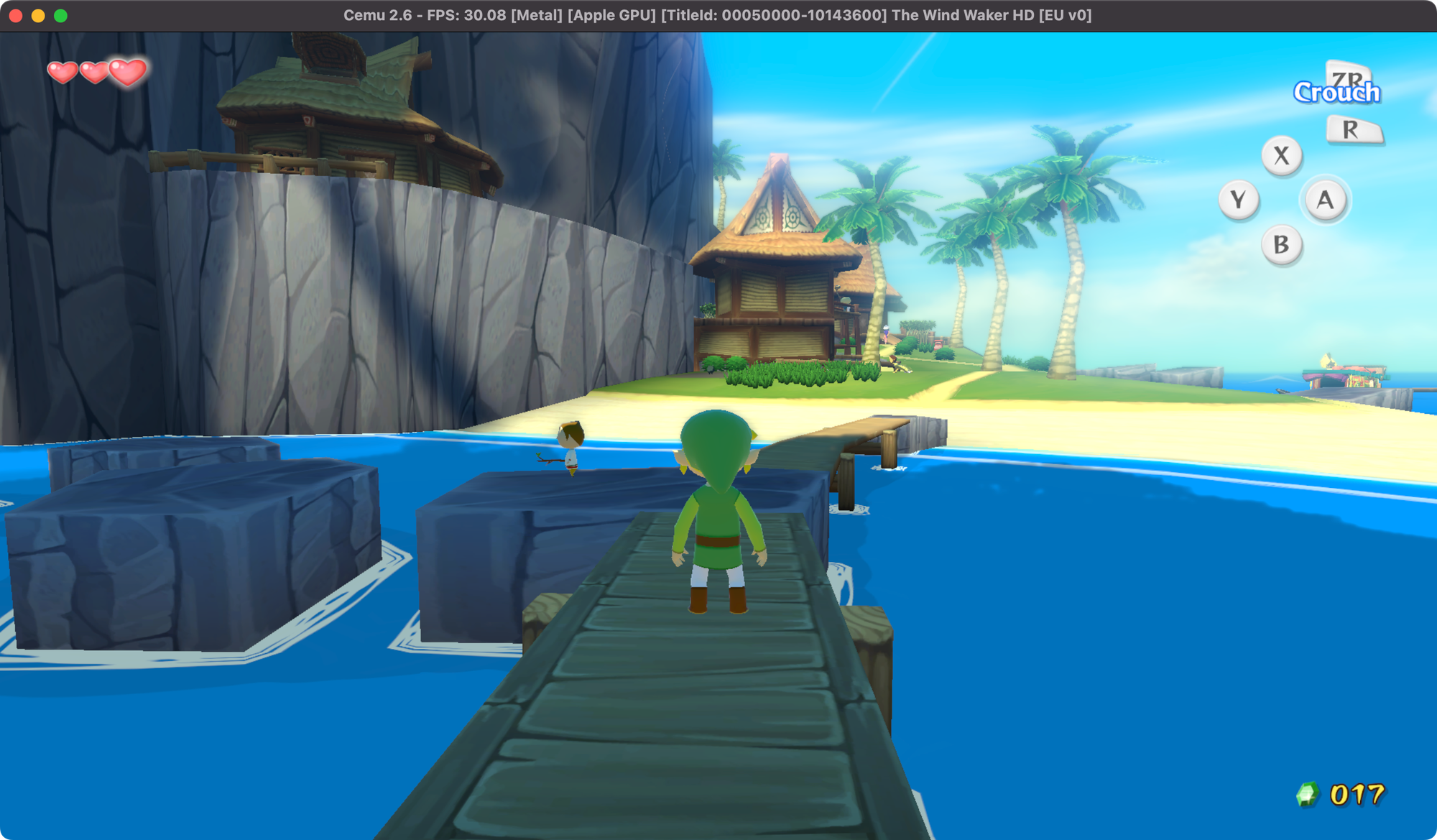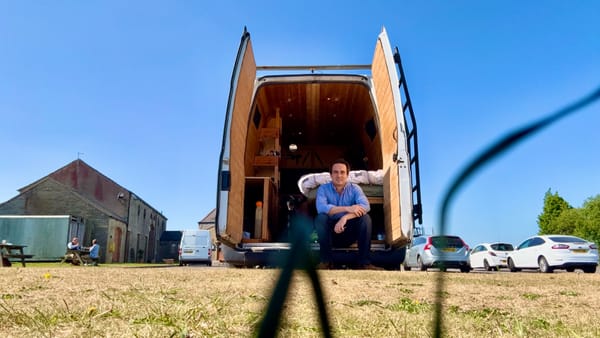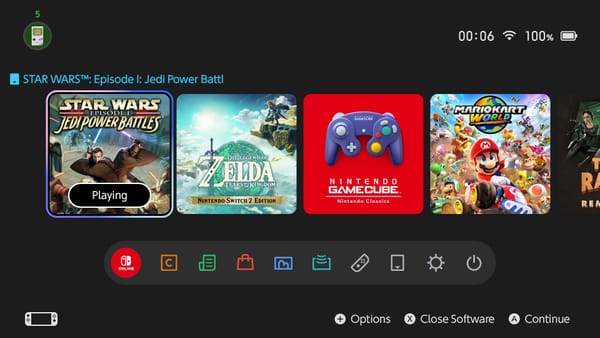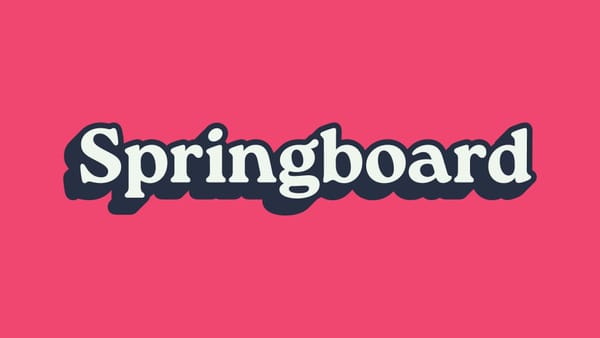Guest Post: Is Google’s AI Mode the Straw that Breaks the Camel’s Back?

It's 2025, and Google is still trying to wreck the web almost weekly with its bizarre methods of AI and algorithms, some of which have wreaked havoc on so many sites and livelihoods these past several years.
I have also been caught in the headwinds of this in recent years, but now that Google's AI Mode, a single button that's now available in its Chrome browser, could be the precipice for something worse for the web as a whole.
This week, I asked my good friend, web-designer-master Kieran McClung (Bluesky, Portfolio), to see if he wanted to write a few words about his experiences with Google in his career, and his thoughts on the company's AI focus. He said yes, and below are his words, which are a great read. Enjoy.
For the last few years, Google has adapted its search engine to keep users on its platform. These changes have a huge negative impact on website traffic, causing many outlets to, yet again, adapt their writing styles, or, in most unfortunate cases, close up shop. No one wants to see websites closing their doors for something out of their control, but it’s the adapting of content that sticks in my craw because, for as long as I’ve known, every part of working on a website has been at the whims of Google.
I’ve been building websites professionally for over 15 years. The landscape has shifted significantly since I first started smashing my keyboard to make a website, but there’s been one constant: Google. There are two key pillars of a good website:
- It needs to work.
- It needs to be seen.
There’s no point trying to get users to visit your site if it doesn’t function correctly, but at the same time, there’s no point spending hundreds of hours fine-tuning a website for it to go completely unseen. And that’s where Google enters the scene.
Google’s Web

Content and development go hand-in-hand when building a website. The first step is keyword research. This is done to get a better understanding of what potential users in the client’s sector are searching for in search engines, primarily Google. This then dictates the website's sitemap (the structure of a website and all of its links). Once that’s decided upon, it’s time to write the content for the pages. Every step of this process is vetted against Google's recommendations, and that’s always been the case.
Many years ago, old-hat SEO (Search Engine Optimisation) methods included ensuring your site had a healthy number of links pointing to it. The more links from websites, the better. This sat in tow with keyword prevalence. You’d set a focus keyword for a page and ensure it appeared as many times as possible on a page without being obviously spammy.
Google killed off both of these practices with its Panda and Penguin updates, updates that saw website visits fall off a cliff almost overnight. The new method of content writing is largely a guessing game based on what we assume Google wants, with its fairly extensive, yet general requirements: good, relevant copy on a well-built website. This is objectively a better solution than keyword stuffing or link building, but this all highlights how much of a hold Google has on the web.
Of course, none of that matters now, because your results appear in an amalgamated AI preview to save the user from clicking through to your site; something that’s only going to get more aggressive when Google launches its AI Mode. This feature is the next step in Google's attempt to snare users, locking them into its platform. It generates a report based on scraped content that you can read in one place, kind of like, you know, a website.
The ever-illusive, ever-evolving algorithm has screwed over websites in the past, but this announcement feels like the biggest middle-finger Google has ever flipped. All those years of adapting to their changes have ultimately led to this point, the point in which Google says, "I got mine, fuck you." The thing is, this is a two-way street. Google needs websites; otherwise, it’s redundant, and websites need search engine exposure to stay afloat.
A shifting tide

Everything up until now has been at Google's behest because it's the most popular search engine, but if that changes, it adds freedom to content creators. The problem is the "If", and how long it takes for that "If" to become "When".
From the development side, I've already noticed a shift away from Google platforms. Anecdotally, marketing agencies are looking for alternatives to Google Analytics, the primary method of tracking how users interact with a website, due to its reliance on third-party cookies, but this is a trend that appears to be widespread. Clients are also shifting away from Google Ads in favour of social media advertising because there has been an obvious and apparent downfall in their performance. That, in particular, will impact Google at large because it's directly affecting their income.
The one thing that remains steadfast and objectively good is its PageSpeed Insights and Core Web Vitals platforms. These encourage well-made and easy-to-use websites. These features help highlight issues with load times, layout shifts (where you try to click on a link, only for something to load above it, and move the page down), and surface-level accessibility issues. Google Chrome’s Web Developer tools are also the best in the business, greatly aiding web development. I can't see a monumental shift away from those any time soon.
And, look, I'm not expecting a full boycott here. It's nigh on impossible to completely detach yourself from Google. They have their fingers in every pie. If it's not YouTube, it's ChromeOS and its line-up of Pixel devices. But if Google starts pushing AI Mode as standard, in a world that isn't wholly convinced of the benefit of AI, they're going to start feeling the impact of a drop-off of users. Pair this with an already noticeable stepping away from marketing tools, and we're looking at an important moment for Google, one that may well fall in the favour of those who make the web what it is today - people.
Thanks for reading.





